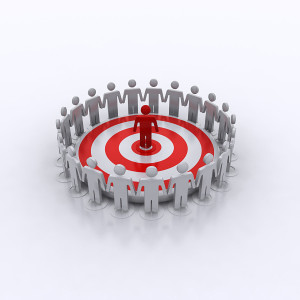What is your privilege?
 I will gladly admit that I’m quite addicted to the quizzes on Buzzfeed. Actually I should probably confess that I’m addicted to BuzzFeed in general but the quizzes seem to pull on my nostalgic recollections of completing non-sensical quizzes in the magazines of my adolescents. I’ve actually begun to think of them as self care, because nothing is more entertaining and stress relieving as determining which country you really should be living in or which Jane Austin heroine you are. Although, I think of myself as more of an Anne Eliot or Elizabeth Bennet vs. Catherine Morland…but I digress. Needless to say I don’t put much stock in the quizzes because they provide an outlet that doesn’t require me to question the validity of the tool they are using to measure my response. Therefore, it was with great surprise I came across their recent quiz, “How Privileged Are You?”, and didn’t immediately role my eyes so hard they almost got stuck that way.
I will gladly admit that I’m quite addicted to the quizzes on Buzzfeed. Actually I should probably confess that I’m addicted to BuzzFeed in general but the quizzes seem to pull on my nostalgic recollections of completing non-sensical quizzes in the magazines of my adolescents. I’ve actually begun to think of them as self care, because nothing is more entertaining and stress relieving as determining which country you really should be living in or which Jane Austin heroine you are. Although, I think of myself as more of an Anne Eliot or Elizabeth Bennet vs. Catherine Morland…but I digress. Needless to say I don’t put much stock in the quizzes because they provide an outlet that doesn’t require me to question the validity of the tool they are using to measure my response. Therefore, it was with great surprise I came across their recent quiz, “How Privileged Are You?”, and didn’t immediately role my eyes so hard they almost got stuck that way.
As BuzzFeed isn’t a place I go for riveting critical social analysis, I was quite impressed with the anti-oppression framework the quiz presented. Now I’m sure there are social researchers out there that are going to poo-poo the quiz but I’m going to ask y’all to hear me out. When I was working in the community doing prevention work, I’d always try to find innovative ways to explain power, privilege, and oppression to my audience. Be they 10 years old to 80 years old, it was was hard to get folks to look at these factors in our society from a broad perspective, it became doubly hard when trying to weave in how they contribute to sexual violence. If I wasn’t careful, the conversation could quickly unravel into a dialogue that focused on polarizing the issues based on race and gender exclusively, where the dominant was inherently evil and everyone else was oppressed. It’s hard for people to step back and look at the intricacies of privilege and the power they have based on it.
I didn’t need the quiz to tell me that growing up I had a great deal of privilege that has carried into my adult years. I grew up in a two parent, middle class, wage earning household. In a home my parents owned, in a neighborhood that was a reflection of my households racial/economic make up. I went to great schools, participated in extracurricular activities that required time and monetary involvement from my parents. Which they could accommodate. I went away to college and though I’ll joke fondly of my starving student days I was fiscally well cared for. Also, while I have student loans from my graduate education, they have not impeded me from living an economic lifestyle I find comfortable. As an adult the list goes on and I am constantly aware of the power these things afford me in our society. Yet, I’m also keenly aware that when I walk into a room these privileges that have contributed to who I am are not immediately acknowledged. When I walk into a room I am a black woman, imbued with the constraints society puts on my race and gender. My existence is complex, messy, and not easily confined to a manageable sound bite of power, privilege, and oppression.
Now what does this have to do with the BuzzFeed quiz, you may ask. Well, when a quiz about privilege asks questions such as, “I don’t rely on public transportation”, “My parents are both alive”, “I can afford medication if/when I need it”, along with questions such as “I have never been raped”, “I am a man”, “I am white”, and “I never had to ‘come out’ “, I feel it’s a form of consciousness raising. Mostly because the questions themselves are not inherently perfect and require a dialogue on power, privilege, and oppression that would be complex, messy, and not easily confined to a manageable sound bite. As a tool of anti-oppression prevention, I couldn’t ask for anything better.
